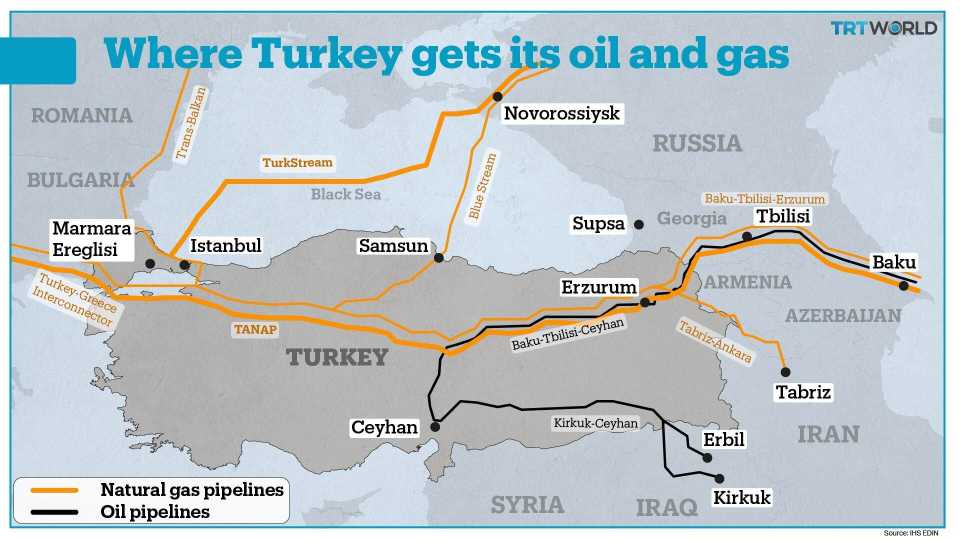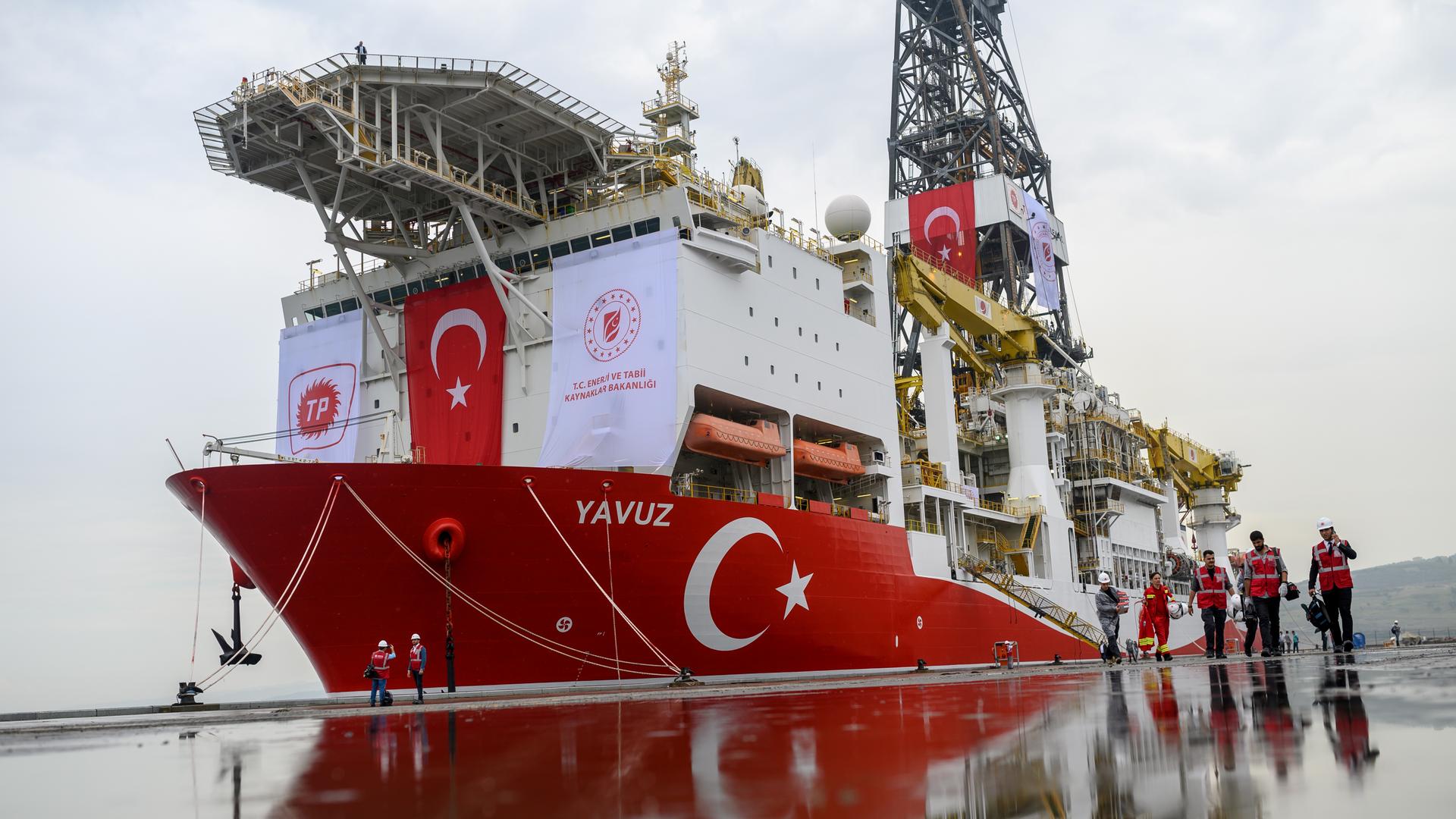Any substantial discovery of natural gas reserves in the deep waters of the Black Sea will have a far-reaching impact on Turkey’s economy, which relies on imports to meet almost all its energy needs.
The foremost benefit comes within a couple of years as Ankara will be able to reduce its energy import bill and stop the drain on its foreign currency reserves.
Last year, Turkey spent $41 billion on energy imports. The payments it makes to buy gas from other countries such as Russia and Azerbaijan have been a drag on its currency for years.
“It will solve a lot of our energy supply security problems. Turkey right now is only producing about 1 percent of its natural gas locally – the rest is imported,” says Mustafa Topuz, a founding partner in Ankara-based MNCM Consulting, tells TRT World.
In a televised address, Turkey’s President Recep Tayyip Erdogan said the discovered reserves at a zone known as Tuna-1 are around 320 billion cubic meters (BCM).
Turkey consumes around 45 BCM of gas a year, down from 50-55 BCM just a few years ago as some power plants have switched to renewable sources.
Developing offshore wells can take at least 5-6 years, but the Turkish policymakers can still drive a more immediate gain from the find by using it as a bargaining tool, Sohbet Karbuz, a Paris-based oil and gas analyst, tells TRT World.
“Turkish contracts with its suppliers that amount to 38 billion cubic meters (a year) will expire by 2026. This gas discovery means Turkey doesn’t need to rush to renew its contracts. It gives a big leverage to Turkey to renegotiate the terms and pricing.”
Fruits of labour
For decades, Turkey depended on energy imports as there was a general belief among policymakers and the private sector that the geology of the country was not feasible for hydrocarbon reserves.

But successive discoveries made by regional countries such as Israel coupled with Turkey’s exclusion from the Eastern Mediterranean energy scene pushed Ankara to expedite its own efforts.
In 2017, as per a new policy, Turkey bought seismic and drilling ships to kickstart exploration in its territorial waters.
Karbuz says the energy potential of the Black Sea and the Eastern Mediterranean, where Egypt found the massive Zohr Gas field in 2015, is still largely untapped.
“It’s such a huge area and only 40-50 wells have been drilled so far.”
Turkey still needs to partner with a multinational company to develop its own field – a process that will cost billions of dollars.
“While on the one hand this obviously helps Turkey reduce its current account deficit, this project’s financing cost and other commitments will be US dollars,” says MNCM’s Topuz.
“In the long term this will have a positive effect but in the medium to short term I don’t expect a dramatic decrease in the gas bill of end consumers.”
The news of the discovery has come as Turkey is gradually increasing import of liquified natural gas (LNG) primarily to benefit from a global slump in gas prices – although piped gas that comes from Azerbaijan and Russia continues to be major sources of supply.
John Bowlus, editor-in-chief of Energy Reporters, tells TRT World that Turkey wouldn’t be too concerned about developing its own gas reserves even when prices are depressed.
“By and large gas will be around for at least 30-40 years. If a country like Turkey is trying to make an investment now in a new find, it can pay off down the road.”
A slump in gas prices has forced companies to suspend work on projects that add new supply to the market – something which can lead to gas shortages in future.
Presence of pipeline infrastructure such as the TurkStream in the Black Sea makes it easier for Turkey to export gas from its own fields, says Bowlus.
To find a gas reserve in the Black Sea and not the politically treacherous East Mediterranean bodes well for Turkey.
“To build a pipeline to export the gas in the East Mediterranean will be very challenging considering all the political tensions,” says Bowlus.










Discussion about this post